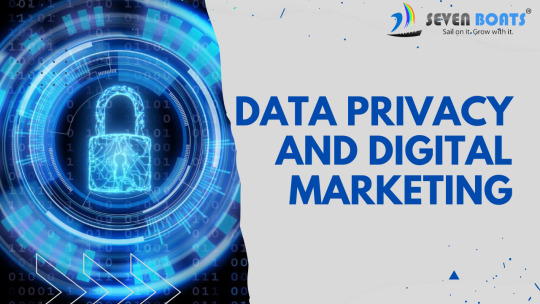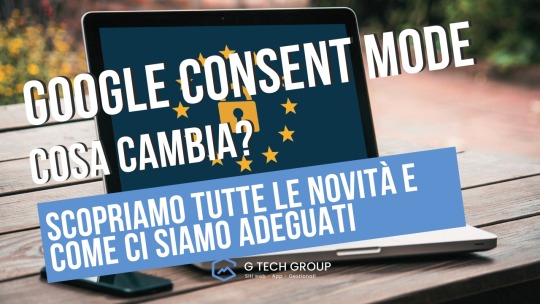#UserConsent
Explore tagged Tumblr posts
Text

45 Million Americans Tracked Without Consent – Could Your Business Be Next?
#DataPrivacy#PrivacyCompliance#UserConsent#DataProtection#PrivacyLaws#SeersAI#TexasPrivacy#DigitalSecurity#DataTracking#GDPR#PrivacyAwareness#BusinessCompliance
1 note
·
View note
Text
Opt In Là Gì? Tìm Hiểu Về Opt In Trong Email Marketing
Nếu bạn đang tự hỏi opt in là gì, đây là câu trả lời: Đó là hành động chủ động của người dùng đồng ý tham gia vào một sự kiện hoặc chương trình cụ thể. Điều này đảm bảo rằng sự tham gia được dựa trên sự lựa chọn của họ.
Opt in là một thuật ngữ khá phổ biến trong marketing trực tuyến. Trong email marketing, opt in giúp doanh nghiệp tiếp cận được khách hàng dựa trên cơ sở tôn trọng quyền riêng tư và lựa chọn của họ.
0 notes
Text
Data Privacy and Digital Marketing: Navigating the Era of User Consent

In a world where data powers our digital lives, there's a quiet revolution taking place in the realm of data privacy. Imagine this: your favorite online store knows exactly what you're shopping for before you even type a search. While it might sound convenient, this new era of digital marketing is all about user consent – giving you control over your personal information. In this blog, we're diving deep into the world of data privacy and how it's shaping the future of digital marketing. So, grab your virtual seatbelt, because we're about to explore how your data and consent are rewriting the rules of the digital landscape!
The Dance Between Data and Digital Marketing
We all leave digital footprints as we browse websites, interact on social media, and engage with online content. This data is like gold for marketers, helping them tailor ads and experiences that cater to our interests. But as the saying goes, "With great power comes great responsibility." Ensuring your data is handled responsibly and with your consent is the heart of data privacy.
Here's how data and digital marketing dance together:
Data Collection: Companies gather information about your online behavior – the websites you visit, the products you view, and the posts you like.
Personalization: This data helps marketers personalize their offerings. Ever noticed ads for shoes after browsing a footwear site? That's personalization in action.
User Consent: With data privacy regulations like GDPR and CCPA, marketers must now seek your explicit consent before collecting and using your data.
The Importance of User Consent
User consent is like the VIP pass to access your data. You're in control, deciding who gets access to your information and for what purpose. Here's why user consent matters:
Transparency: Marketers must be transparent about what data they're collecting and how they intend to use it. You have the right to know.
Choice: Consent gives you the power to decide. You can choose to allow certain uses of your data while denying others.
Trust: When companies respect your choices and only use your data as agreed, it builds trust between brands and consumers.
Navigating the Landscape of Data Privacy Regulations
Governments around the world are stepping up to protect your data rights. Regulations like the General Data Protection Regulation (GDPR) in Europe and the California Consumer Privacy Act (CCPA) in the US are leading the way.
Here's a closer look:
GDPR: It gives European citizens greater control over their personal data. Companies need explicit consent before collecting data and must notify users of data breaches.
CCPA: If you're a California resident, CCPA empowers you with the right to know what data companies collect about you and the ability to opt out of the sale of your data.
The Impact on Digital Marketing Strategies
With user consent at the center, digital marketing strategies are evolving:
Permission Marketing: Marketers are shifting towards permission-based strategies, ensuring they have consent before sending emails or displaying ads.
Hyper-Personalization: Consent-driven data collection leads to hyper-personalized experiences. You only see content and ads aligned with your preferences.
Building Trust: Brands that prioritize data privacy and user consent are seen as trustworthy, fostering stronger relationships with consumers.
Nurturing a Culture of Consent
As a consumer, you play a vital role in this new era. Here's how you can navigate the landscape:
Read Privacy Policies: Understand how companies collect and use your data by reading their privacy policies.
Exercise Your Rights: If you're uncomfortable with how your data is being used, exercise your right to deny consent or request data deletion.
Stay Informed: Stay updated on data privacy regulations to know your rights and hold companies accountable.
In Conclusion
The era of user consent and data privacy is transforming digital marketing into a more ethical and respectful landscape. As a user, you're no longer just a data point – you're the captain steering your digital journey. By embracing transparency, making informed choices, and understanding your rights, you become an active participant in this evolution. So, whether you're scrolling through your favorite social media app or browsing the web for the latest trends, remember that your data and your consent are shaping the future of the digital world.
FAQs
1. What is user consent in the context of data privacy and digital marketing?
User consent means you're in charge of your data. It's giving permission before companies can use your personal information for things like ads or marketing.
2. How does user consent affect the way companies collect and use my data for digital marketing purposes?
User consent makes companies ask for permission first. They need your agreement to collect data about your online activities and use it to personalize ads or marketing.
3. What are the key data privacy regulations that affect digital marketing practices?
Important rules like GDPR and CCPA tell companies how they can use your data. They need to be clear about what they're doing with it and get your okay first.
4. How does the General Data Protection Regulation (GDPR) affect digital marketing efforts on a global scale?
GDPR is like a data privacy superhero. It protects your info, even if a company is in another country. They need your consent and must tell you if they had a data breach.
5. What rights do consumers have under data privacy regulations like GDPR and CCPA?
GDPR and CCPA give you cool rights. You can ask what data a company has about you, tell them to delete it, and even say "no" to them selling it to others.
6. Are companies required to obtain user consent before sending marketing emails or displaying targeted ads?
Yes, companies need your okay before sending emails or showing ads that are aimed at you. They should ask for your permission first.
7. How does data privacy and user consent impact the way marketers personalize their campaigns?
Marketers need to follow your rules. They can only use your data if you say it's okay. This helps them make ads that match your interests.
8. Can I withdraw my consent for data collection and usage at any time?
Absolutely! You're the boss of your data. If you change your mind, you can tell a company to stop using it and they have to listen.
9. How can I ensure that the websites and apps I use are compliant with data privacy regulations?
Look for their privacy policies – they should explain what they do with your data. If they ask for your consent and let you control your data, that's a good sign.
10. What steps should businesses take to align their digital marketing strategies with data privacy regulations?
- Businesses need to respect your privacy. They should tell you how they'll use your data, ask for your permission, and give you choices about what they do with it.
#DataPrivacy#DigitalMarketing#UserConsent#PrivacyMatters#GDPR#CCPA#DataProtection#Personalization#EthicalMarketing#TrustworthyBrands#DigitalPrivacy#DataRights#Transparency#OnlinePrivacy#ConsentCulture#DataSecurity#DigitalEthics#UserRights#DataCollection#ResponsibleMarketing
0 notes
Text
Navigating a Cookie-Free Future: Customizing Digital Marketing Strategies
In the dynamic world of digital marketing, change is constant. Moving into the future, one of the most significant shifts facing marketers today is the move to a cookie-free environment. With growing privacy concerns and changing regulations, the era of relying on third-party cookies for tracking and targeting is coming to an end. In this blog post, we'll explore the concept of a cookie-free future, its implications for digital marketing, and strategies to adapt and thrive in this evolving environment.

The Cookie Landscape: A Brief Overview
Cookies have long been a drag on online tracking and targeting. These small pieces of data stored in users' browsers allowed marketers to gather information about user behavior, preferences, and interactions. This information, in turn, supported personalized advertising campaigns and optimized user experiences. However, growing concerns about privacy, user consent, and regulatory changes have led to a shift away from this traditional method of tracking.
The Rise of Privacy Regulations
Recent regulatory developments, particularly the General Data Protection Regulation (GDPR) and the California Consumer Privacy Act (CCPA), have focused attention on user data protection and privacy rights. These regulations have ushered in a new era of digital transparency, giving users more control over their personal data. As a result, third-party cookies, often used without the user's express consent, become obsolete.
Implications for Digital Marketers
A cookie-free future presents both challenges and opportunities for digital marketers:
Data Collection and Targeting: Marketers will need to find alternative methods for collecting user data and serving targeted ads as the traditional cookie-based approach becomes less effective.
Personalization: With limitations on data tracking, achieving a personalized user experience will require innovative strategies that respect user privacy while providing relevant content.
Measurement and Analytics: Metrics using third-party cookies, such as attribution and cross-device tracking, will need to evolve to provide accurate statistics in a cookie-free environment.
User Experience: As users become more privacy conscious, brands that prioritize transparent data practices and respectful user experiences will stand out.
Strategies for adapting to a cookie-free landscape
First-Party Data: Focus on collecting and using your own first-party data, obtained through direct interactions with users on your website or in your app. This data is more reliable and ethically obtained.
Contextual Advertising: A move towards contextual advertising, where ads are displayed based on the content of a web page rather than data about individual users.
Consent Driven Marketing: Obtain user's express consent to collect and use data. Implement robust consent management systems to ensure regulatory compliance.
Advanced Technologies: Explore advanced technologies such as machine learning and artificial intelligence to create predictive models that can predict user preferences without invasive tracking.
Collaboration and Partnerships: Partner with publishers and platforms that prioritize user privacy and ethical data practices.
Embrace a Privacy Policy: Position your brand as a champion for user privacy by being transparent about your data practices and respecting user choices.
Conclusion
A future without cookies represents a key moment in the evolution of digital marketing. While change may seem challenging, it also represents a unique opportunity to build more meaningful and considerate relationships with users. By adapting your strategies to meet user expectations and privacy regulations, you can navigate this environment with confidence and continue to deliver valuable experiences to your audience. Embrace this shift and let it inspire you to innovate and discover new ways to connect and engage in a cookie-free world.
#CookielessFuture#PrivacyFirst#DigitalMarketingShift#AdaptAndThrive#DataPrivacy#UserExperience#FirstPartyData#ContextualAdvertising#ConsentDrivenMarketing#EthicalDataPractices#PersonalizationStrategies#InnovativeMarketing#UserPrivacy#MarketingRegulations#DigitalTransformation#UserConsent#DataCompliance#TransparentMarketing#BrandTrust#MarketingInnovation
0 notes
Photo

🚨✨ Big news from LinkedIn! 🚨✨ In a significant move, LinkedIn has halted the use of UK users' data for training its AI models! This comes on the heels of serious concerns raised by the UK's Information Commissioner’s Office (ICO). 🎉🙌 Key highlights: - **Data Processing Suspended**: UK user data is no longer being used for AI training. - **Privacy Policy Update**: LinkedIn has committed to improved data protection protocols, aligning with standards for the EU. - **Pressure from Regulators**: The ICO and advocacy groups are pushing for better consent mechanisms. The conversation around *opt-in vs. opt-out* is heating up! 🔍🛡️ - **Tech Comparisons**: Meta's fluctuating approaches to data usage highlight the industry-wide struggle with privacy concerns. What's your take on this? Is it enough? Should tech companies prioritize user consent above all else? Let's discuss! 💬👇 Check out the full story here: [Read more](https://medium.com/@meditationmusicshiva/linkedin-halts-uk-user-data-for-ai-training-amid-privacy-concerns-4ba6b76eab55) #DataPrivacy #LinkedIn #AI #UserConsent #TechNews #PrivacyMatters #DigitalRights
0 notes
Photo

🚀🔒 Sei pronto a rivoluzionare il modo in cui gestisci la privacy sul tuo sito web? Scopri come Google Consent Mode sta cambiando le regole del gioco! 🌐🔐 In G Tech Group, abbiamo adottato una soluzione all'avanguardia che bilancia perfettamente la conformità GDPR e l'efficacia aziendale. Con Google Consent Mode e Complianz, offriamo un'esperienza utente rispettosa della privacy senza sacrificare dati preziosi. 📊🛡 Vuoi sapere come questa innovazione può trasformare anche il tuo business online? 🤔💡 Leggi il nostro ultimo articolo e scopri come la tecnologia sta plasmando un futuro in cui privacy e performance vanno di pari passo! 🌟🔗 Non perdere questa opportunità! Clicca sul link e immergiti nel mondo del consenso digitale. 🌍👇 https://gtechgroup.it/google-consent-mode-rivoluziona-la-gestione-del-consenso-online/ #GoogleConsentMode #PrivacyOnline #GDPRCompliance #DigitalMarketing #WebPrivacy #TechInnovation #UserConsent #DataProtection #GTechGroup #SEO #OnlineBusiness #MarketingStrategies #GoogleAnalytics #GoogleAds #WebDevelopment #Complianz #InternetPrivacy #DigitalConsent #BusinessGrowth #MarketingTips #TechNews #FutureOfPrivacy
0 notes